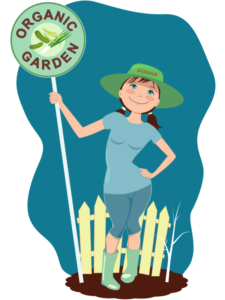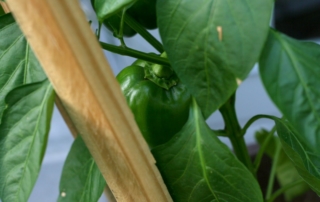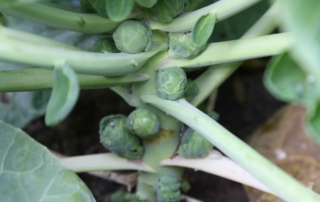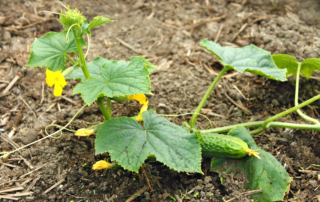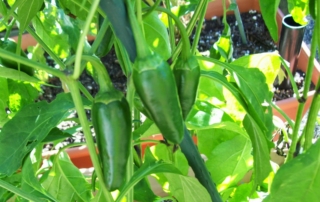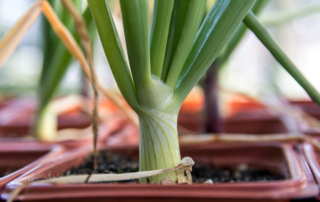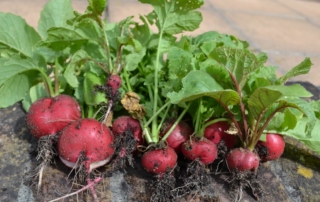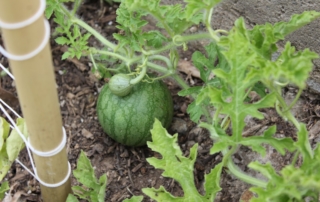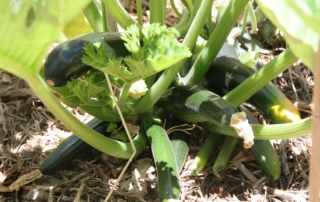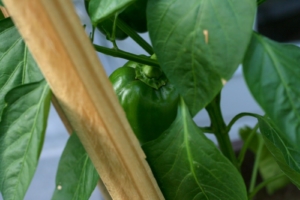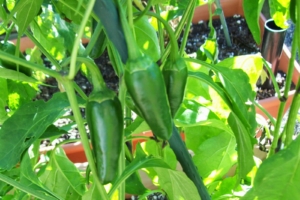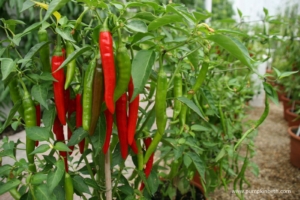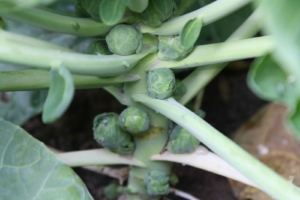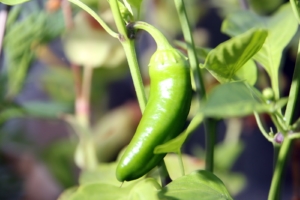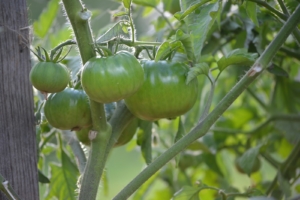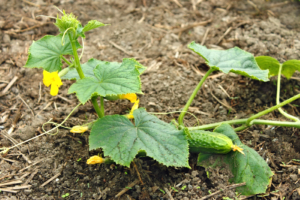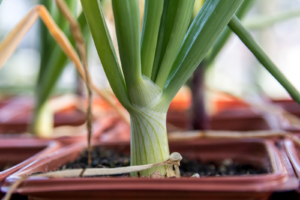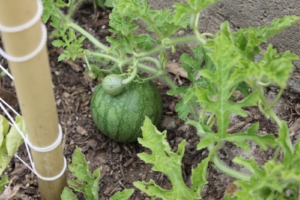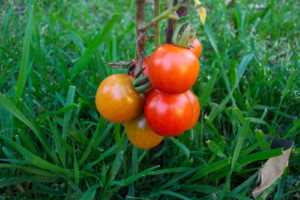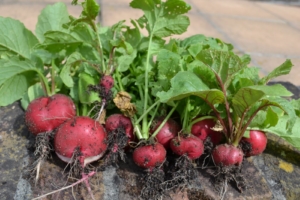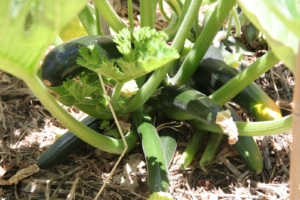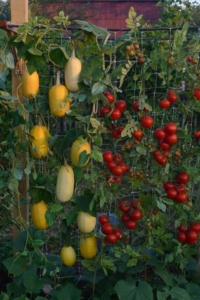Vegetable Gardening in Bergen County – Goffle Brook Farms
Home gardens take on many forms, from a few plants in containers to large garden plots in the backyard. Beyond the reward of homegrown produce, gardens provide health, environmental and enjoyment advantages for the gardener. The benefits of a home garden make the physical exertion and costs of gardening worth the effort.
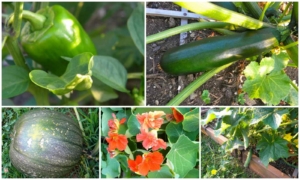 Growing your own vegetable garden can do more than provide tasty produce—gardening can improve health, save money and even boost mood. Community gardens, backyard plots, and even window boxes are gaining in popularity, and tomatoes are among the first seeds new gardeners plant. Whole generations of Americans have never eaten homegrown tomatoes—never experienced the beefy taste, the grassy aroma, the juiciness, and the silken texture of tomatoes right off the vine.
Growing your own vegetable garden can do more than provide tasty produce—gardening can improve health, save money and even boost mood. Community gardens, backyard plots, and even window boxes are gaining in popularity, and tomatoes are among the first seeds new gardeners plant. Whole generations of Americans have never eaten homegrown tomatoes—never experienced the beefy taste, the grassy aroma, the juiciness, and the silken texture of tomatoes right off the vine.
Watching a seed blossom under your care to become food on your and your family’s plates is gratifying. Growing your own food is one of the most purposeful and important things a human can do—it’s work that directly helps you thrive, nourish your family, and maintain your health. Caring for your plants and waiting as they blossom and “fruit” before your eyes is an amazing sense of accomplishment!
Backyard gardening helps the planet in many ways. If you grow your food organically, without pesticides and herbicides, you’ll spare the earth the burden of unnecessary air and water pollution, for example. You’ll also reduce the use of fossil fuels and the resulting pollution that comes from the transport of fresh produce from all over the world.any garden.
The Vegetables of Goffle Brook Farms
To View a List of Our Currently Available Vegetables
For Planting in Your Home Garden Beds
We Have Provided A Link Below
And he gave it for his opinion, that whoever could make two ears of corn, or two blades of grass, to grow upon a spot of ground where only one grew before, would deserve better of mankind, and do more essential service to his country, that the whole race of politicians put together.
“In the spring, at the end of the day, you should smell like dirt.”
“However many years she lived, Mary always felt that ‘she should never forget that first morning when her garden began to grow.”
The first gatherings of the garden in May of salads, radishes and herbs made me feel like a Mother about her baby – how could anything so beautiful be mine. And this emotion of wonder filled me for each vegetable as it was gathered every year. There is nothing that is comparable to it, as satisfactory or as thrilling, as gathering the vegetables on has grown.
This cabbage, these carrots, these potatoes, these onions… will soon become me. Such a tasty fact!
It was such a pleasure to sink one’s hands into the warm earth, to feel at one’s fingertips the possibilities of the new season.
Vegetable Gardening Tips and Care
The location of your garden (the amount of sunlight it receives, proximity to a source of water, and protection from frost and wind) is important. Yet just as crucial for growing vegetables is making the most of your garden space.
Lots of people dream of having a huge vegetable garden, a sprawling site that will be big enough to grow everything they want, including space-hungry crops, such as corn, dried beans, pumpkins and winter squash, melons, cucumbers and watermelons. If you have the room and, even more importantly, the time and energy needed to grow a huge garden well, go for it. But vegetable gardens that make efficient use of growing space are much easier to care for, whether you’re talking about a few containers on the patio or a 50-by-100-foot plot in the backyard. Raised beds are a good choice for beginners because they make the garden more manageable.
The location of your garden (the amount of sunlight it receives, proximity to a source of water, and protection from frost and wind) is important. Yet just as crucial for growing vegetables is making the most of your garden space.
Lots of people dream of having a huge vegetable garden, a sprawling site that will be big enough to grow everything they want, including space-hungry crops, such as corn, dried beans, pumpkins and winter squash, melons, cucumbers and watermelons. If you have the room and, even more importantly, the time and energy needed to grow a huge garden well, go for it. But vegetable gardens that make efficient use of growing space are much easier to care for, whether you’re talking about a few containers on the patio or a 50-by-100-foot plot in the backyard. Raised beds are a good choice for beginners because they make the garden more manageable.
A deep, organically rich soil encourages the growth of healthy, extensive roots that are able to reach more nutrients and water. The result: extra-lush, extra-productive growth above ground.
The fastest way to get that deep layer of fertile soil is to make raised beds. Raised beds yield up to four times more than the same amount of space planted in rows. That’s due not only to their loose, fertile soil but also to efficient spacing—by using less space for paths, you have more room to grow plants.
The best soil suitable for vegetables includes lots of compost and organic matter such as composted leaves and ground or shredded, aged bark. Whatever you’re starting with, incorporate enough organic material so that the amended soil is neither sandy nor compacted. When the mix is right, it will bind together when you squeeze it but breaks apart easily when disturbed. This soil is full of living microorganisms that help feed your plants. Water will be sufficiently retained and yet won’t saturate the soil either.
Add a three-inch layer of any organic mulch around your plants and over the irrigation lines if possible. Mulch will insulate the soil, helping to keep it cooler in summer and warmer in winter. It also helps retain moisture, suppress weeds and acts as a protective barrier from diseases splashing up onto the plants from the soil. And besides, mulch looks great in the garden.
Knowing the source of your mulch is as important as using it. Especially in a vegetable garden. Some mulches can contain unacceptable amounts of harmful chemicals. Although there is no such certification for bulk mulch as yet the non-profit organization, The Mulch and Soil Council, certifies bagged mulches and soils to be free of any harmful ingredients. Look for their seal on the bag or ask your bulk mulch supplier if they know the source of their mulch.
Why Shop at Goffle Brook Farms
- Courteous, knowledgeable and professional staff
- Locally Grown Fresh Seasonal Produce
- Quality Perennials – Annuals – Herbs and Garden Plants
- Full-scale Garden Center on Premises
- Conveniently located in Ridgewood, New Jersey
- Open 7 days a week from March 15th through Christmas Eve
- Family owned and operated since May 1st, 1968
- Serving Bergen County for over FIFTY years
What Our Customer’s Say
This is such a great place. Goffle Brook Farm & Garden Center has friendly and helpful staff that seem to really appreciate your business. They have a great selection of plants, flowers, gardening supplies, great FRESH local produce and I am sure tons of stuff I have yet to discover. The staff is very knowledgeable and always takes the time to walk me through any garden problem or question I have.
I’ve been going to Goffle Brook Farm & Garden Center regularly for the past year since my family moved to the area and every time I go I leave happy. What more can you ask for?They will have my loyal business. I think they deserve your business too.
Really cute garden center. My boyfriend and I stopped by to get some pumpkins. They had a great variety of both small and large pumpkins. They also have a small petting zoo with goats, sheep, and a pig. They have a small variety of produce for purchase inside. We wound up sampling cider they were selling and bought that as well as it was delicious. We may go back to get more. Employees were very helpful and friendly.
Highly recommend this garden center.

